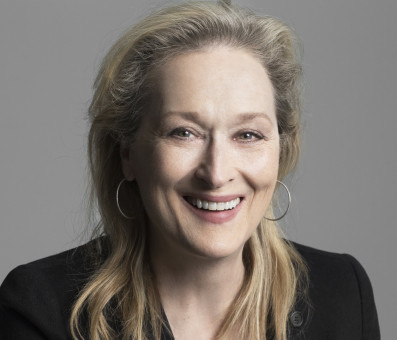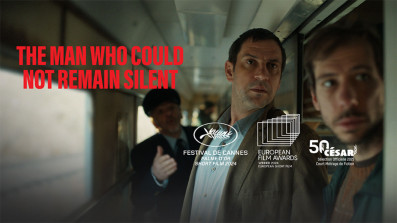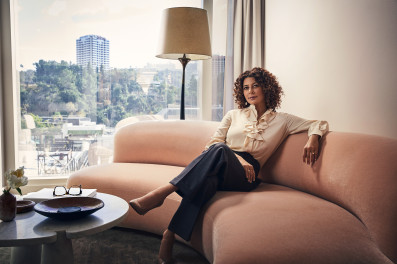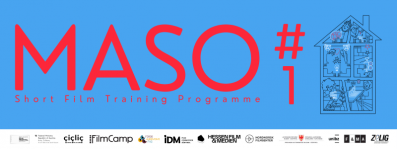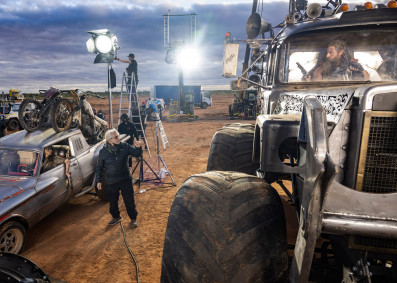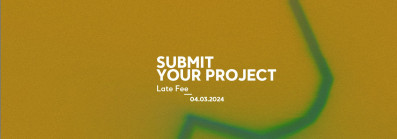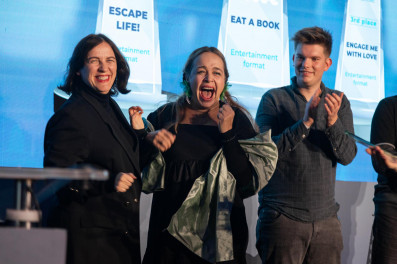Interview with actor Goran Bogdan: People here have more in common than nationally guarded fencers would like to admit
Despite the possibilities, we still experience our traumas the most
Goran Bogdan (Široki Brijeg, 1980) is a theatre, film and television actor, known for his roles in the series Stipe as a guest and Shadows over the Balkans, as well as the films Sonja and the Bull, Agape and Father. He lives and works in Zagreb. Before he decided to enrol in acting, Bogdan studied at the Faculty of Economics and Transport in Zagreb. Realizing that acting was, after all, his real calling, in 2005 he enrolled at the Academy of Dramatic Arts in Zagreb. Although the theatre audience knows him from numerous plays in which he played, the general public met him as Čuljko's lawyer in the series Forbidden Love, followed by the TV series Ordinary People, Roommate Fry, Crazy House, Pride of the Ratkajes, Stipe as a guest and others. Along with a rich theatre and television career, Bogdan is building an equally successful career in film. From 2007 to 2020, he played more than twenty film roles, among which the most impressive was the role of Ante Keva in the film Sonja and the Bull. He played Yuri Gurko in the popular American TV series Fargo, Misha Halenko in the series Ransom, and Antonia in the Swedish comedy All Inclusive. He gained regional popularity with the role of Mustafa Golubić in the series Black Sun, and Nikola in the shocking drama Father.
The European Film Academy has nominated you for the European Film Award in the category of best actor, for the film Father of Srdan Golubović. You have masterfully played your part, in the universal story of fighting the socio-economic and administrative adversities that are eating away at our society. What was it like working on the film?
Working with Srdjan, I felt that this was the right path. During the work process, I wanted to go to the end, and even further, as far as I could to find out what was there. Whether there is sometimes disappointment between what I think of myself or unattainability, terra incognita, the abyss between ego and superego, thanks to Srdjan and such directors ceases to matter. The road itself is important then. The nomination is a sign that we are on the right path. It is not a matter of luck but of some security. When you ask about social issues, I don't care about which topic, but how.
The role was intended for the prematurely deceased Nebojsa Glogovac. When reading the scripts and rehearsals, did you imagine him and try to introduce him to your role?
It is. We all know what happened and how hard and painful it was. He was constantly present in his mind and whether he wanted to or not - I imagined how he would do it. He was a great role model. But day by day that character was born and took over a bit of his will and mine and his actions. From one moment he fully had his will and it was up to me just to follow.
You are the first Croatian actor nominated for this award, and in 2010 Zrinka Cvitešić was nominated for the film On the Road by BiH director Jasmila Žbanić. Is it good luck to work in the neighbourhood?
I think both films are the sum of co-productions. It's not a neighbourhood anymore, it's closer. Because unlike political borders, the people here, especially those from the middle and lower classes, have more in common than the nationally-minded fence guards would like to admit. Or if our progress is national, then our misery is Yugoslav. Even simpler, happiness is work. Happiness is working in the neighbourhood. Even simpler, happiness is working with good directors and on good projects. If it were a coin by the principle of the invisible hand, it would be the greatest GDP growth and the greatest patriotism.
You work a lot in the post-Yugoslav space and through your roles, you go through the historical context of our space from different perspectives. How do you view the emphasis on differences and otherness and the constant need to emphasize that we (whatever that means) are superior to others?
These are normal ailments as well as tooth growth. It's a matter of perspective. It is also a matter of how much personal courage we have to look broadly, whether we have hearts for breadth. In our room, in that tent we make as children, we are kings, leaders, tyrants. We invent the rules ourselves and give ourselves rewards. We establish the variables and comparison matrices ourselves. When we are alone, we have no model sizes or minorities. Post-Yugoslav, or English, or German, it doesn't matter. Let's not be fooled, I'm not emphasizing that space of language for the sake of the same or similar. Only, we actors are limited by that first barrier. I try to follow natural paths. Differences are the cause of conflict and intolerance, but they are also potential. There may be comparative advantages.
What is your identity? Do you mind hiding behind national identities and labelling of that kind? In Zagreb, you are Herzegovinian, in Belgrade you are Croat, in Herzegovina you are probably Purger.
Identity is something intimate and something that is built. It cannot be something given, something that comes only by birth. If so much discord is created in the name of identity, then it would have to be something more valuable than coincidence. if he is more valuable, then he must be deserved. Labels bother me. They are bad and superficial. Ultimately - funny. I don’t consider it important how someone looks at me. After all, tastes and perceptions are subject to discussion.
Recently, film critics in Jutarnji list chose the best domestic films, and only the film by Serb Nebojsa Slijepcevic is from the post-Yugoslav period. What does this say about our cinematography, but also about the departure from the dungeon of the people and a sovereign, independent and sovereign Croatia?
And I guess that process is still going on. The process of transition or permanent shock that has reigned for decades. I guess our country is still wanted in that, at least from the aspect of cultural policy. Now I don't know what the attitude towards cultures was in the past system, concerning what is happening today. Who will know? And I agree with the critics of Jutarnji. Now, what is the cause of that - that we do not have cultural enthusiasm, or something else, I'm not sure. That some repression has a good effect on the culture of the film cannot be exactly true, because there was that torment even later, and it happened that the film after the war fell into some pale vague anaemic poetics, which only began to open in recent years, extreme again.
You’ve been shooting more and more outside lately. What can the Balkans offer to the American and European markets? Are they more interested in outstanding actors and actresses, who can shine there as cheap labour, or our repetitive history? Do we know how to sell our traumas or do we just know how to live them?
It can offer everything. There is no cheap labour in the culture. Marina Abramović is a product of the Balkans. The possibilities are endless. We just have to organize ourselves, the environment and the market. Despite the possibilities, we still experience our traumas the most. The policies of the local governments are not aware of the possibilities of culture as a generator of the economic. Extruded first by the budget and then by the spotlight, cultural figures are separated from culture itself. We are left with old habits and meddling in politics in the wrong way. Instead of supporting their culture, the cultural establishment that comes in front of their governments manages to - I don't even know how - just go backwards. I am not competent to judge how it is in which art. However, it constantly strikes me in my soul when I see, say, the circulation of publications in libraries. There are many possibilities, both in one direction and in the other, to develop or to break the culture to the end.
For many years you have been organizing the West Herzegowina Fest and bringing artists to Herzegovina who deals with literature, music, film, theatre, painting ... Mak Dizdar had this idea 50 years ago when he founded Slovo Gorčina. Did this come from the noble intention to offer fellow citizens excellent art, or to gather in one place everything you would like to see from the production in that year, under the guise of a socially responsible relative from the motherland?
I didn't know Mac dreamed about it. I love Mack. I didn't even know what to do with it. It has outgrown us. It's just beautiful. I also made an obligation to come home, with a big K, to see my own, to hang out, to enjoy. The Great Poppy wrote beautifully:
You came here
Where the most ungrateful was to come
This is where the craziest thing was to get there
This is where it was most heroic to come across
Because you don't live here just to live
You don't live here just to die
Here one dies to live
Good thing it's the same idea. I hope that West Herzegowina Fest will generate further good. And nothing more.
Source: Vanja Šunjić/ Prometej


